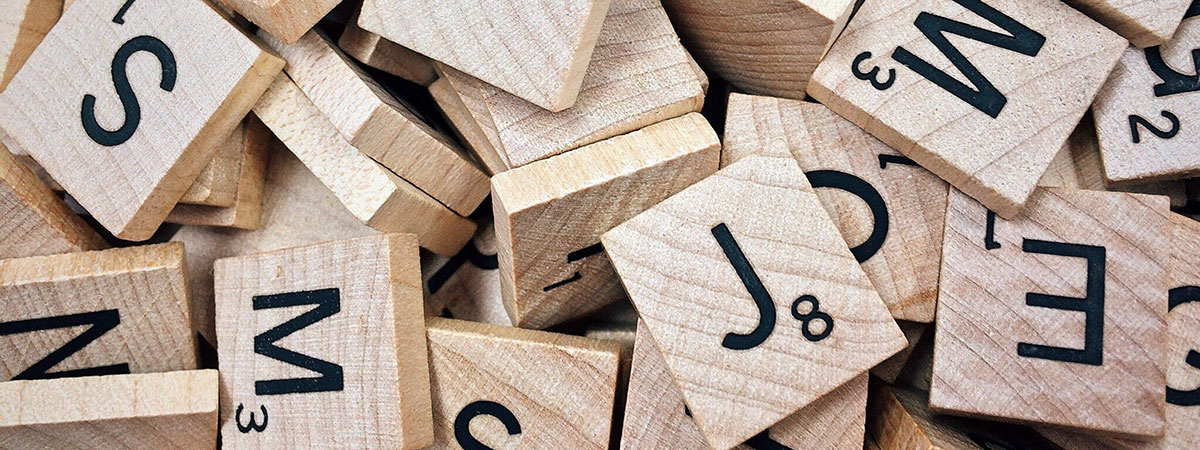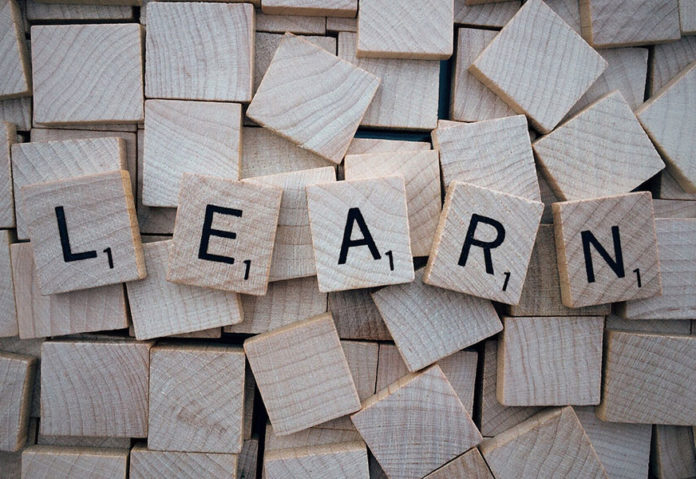On le sait, apprendre l’anglais prend du temps. On ne vous en voudra pas de prendre quelques raccourcis ! Par exemple, vous pouvez commencer par apprendre les 100 noms les plus utilisés en anglais. Cela vous permettra de vous lancer plus facilement dans une conversation avec un anglophone.
Il y a différentes façons d’apprendre l’anglais et des centaines de ressources accessibles sur Internet, par des cours en ligne ou dans des cahiers d’exercices. Mais qu’importe la méthode d’apprentissage que vous choisissez, vous finirez par devoir apprendre une liste de vocabulaire ! Alors autant apprendre le vocabulaire le plus utilisé, non ? Après nos articles sur les 100 mots les plus utilisés en anglais et les 55 verbes à connaître, voici une liste des 100 noms les plus communs dans la langue anglaise.
Les 100 noms les plus utilisés en anglais
Plutôt que de vous faire une liste de vocabulaire en anglais avec la traduction en français, vous trouverez ici une liste des noms en anglais ainsi que leur définition en anglais également. Notez que ces 100 noms les plus utilisés en anglais se retrouvent surtout dans des livres et documents officiels : ce ne sont pas forcément les noms les plus communs dans des conversations du quotidien.
1. Time : a concept used to measure and express the duration and progression of events in the past, present, and future.
2. Year : a period of 12 months, typically starting from January and ending in December, used to measure time.
3. People : human beings considered as a group or community
4. Way : a method or style of doing something; a route or pathway to a destination.
5. Day : a period of 24 hours that is usually measured from midnight to midnight.
6. Man : an adult human male.
7. Thing : an object, animal, or quality that can be perceived by the senses or the mind.
8. Woman : an adult human female.
9. Life : the existence or experience of being alive; the period between birth and death.
10. Child : a young human being who has not yet reached adulthood.
11. World : the earth and all its inhabitants; the whole of human existence.
12. School : an institution for educating children.
13. State : a nation, territory, or area with its own government.
14. Family : a group of people related by blood, marriage, or adoption.
15. Student : a person who is studying at a school or college.
16. Group : a collection of individuals who come together for a common purpose or interest.
17. Country : a nation with its own government, occupying a particular territory.
18. Problem : a matter or situation that requires resolution, typically involving difficulty or complexity.
19. Hand : the terminal part of the human arm, beyond the wrist, consisting of the palm, fingers, and thumb.
20. Part : a piece or segment of something.
21. Place : a specific location or position in space.
22. Case : a situation or instance of something happening or occurring.
23. Week : a period of seven days.
24. Company : an organization created for business or commercial purposes.
25. System : a set of connected things or parts forming a complex whole.
26. Program : a set of instructions designed to perform a specific task or function.
27. Question : a sentence or phrase used to ask for information or to test knowledge.
28. Work : activity involving mental or physical effort done to achieve a result.
29. Government : the group of people that governs or controls a country, state, or organization.
30. Number : a mathematical quantity used to count or measure.
31. Night : the period of darkness between sunset and sunrise.
32. Point : a specific location in space or time.
33. Home : the place where one lives permanently.
34. Water : a transparent liquid that forms the seas, lakes, rivers, and rain and is the basis of the fluids of living organisms.
35. Room : a space within a building enclosed by walls and floor.
36. Mother : a woman in relation to her child or children.
37. Area : a particular part of a place, city, or country.
38. Money : a medium of exchange in the form of coins, banknotes, or digital currency.
39. Story : an account of imaginary or real events, typically intended to entertain or inform.
40. Fact : a thing that is known or proved to be true.
41. Month : a period of time lasting about four weeks, usually based on the lunar cycle.
42. Lot : a particular portion or piece of land.
43. Right : a moral or legal entitlement to have or do something; a direction.
44. Study : the devotion of time and attention to acquiring knowledge or information.
45. Book : a written or printed work consisting of pages glued or sewn together along one side and bound in covers.
46. Eye : the organ that enables sight and perception.
47. Job : a paid position of regular employment.
48. Word : a single distinct meaningful element of speech or writing.
49. Business : an organization engaged in commercial, industrial or professional activities.
50. Issue : an important topic or problem for debate or discussion.
51. Side : a position or attitude taken in a conflict or controversy.
52. Kind : a group of people or things having similar characteristics.
53. Head : the upper part of the human body, or the front or upper part of an animal’s body, containing the brain and the sense organs.
54. House : a building for people to live in, typically consisting of one or more rooms.
55. Service : an activity or benefit provided by a business or organization to its customers.
56. Friend : a person with whom one has a bond of mutual affection.
57. Father : a male parent.
58. Power : the ability or capacity to do something; energy that is produced by mechanical, electrical, or other means and used to operate a device.
59. Hour : a period of time lasting 60 minutes.
60. Game : an activity or sport that involves competition or play.
61. Line : a long, narrow mark or band.
62. End : the final part of something.
63. Member : A person or organization that belongs to a group or team.
64. Law : A rule, usually made by a government, that is enforced by society.
65. Car : A motorized vehicle with four wheels that is used for transportation.
66. City : A large town or urban area that serves as a center of commerce and culture.
67. Community : A group of people living in the same area, sharing interests, and working together.
68. Name : A word or set of words that identifies a person, place, or thing.
69. President : The head of a country, community, or organization.
70. Team : A group of people who work together to achieve a common goal or purpose.
71. Minute : A unit of time equal to 60 seconds.
72. Idea : A thought, plan, or suggestion for doing something.
73. Kid : A child or young person.
74. Body : The physical structure and material substance of an organism, especially a human.
75. Information : Knowledge or facts learned through study, research, or experience.
76. Back : The rear part of the human body or an animal’s body.
77. Parent : A person who has a child or children.
78. Face : The front part of the head, an expression on it, or the outer surface of something.
79. Others : People or things that are not oneself or the ones already mentioned.
80. Level : A position on a scale of amount, quantity, degree, or quality.
81. Office : A room, set of rooms, or building used as a place for commercial, organizational or professional work.
82. Door : A movable barrier used to cover an entrance or exit to a building, room, vehicle, or other enclosed space.
83. Health : The state of being free from illness or injury.
84. Person : An individual human being.
85. Art : The expression or application of human creative skill and imagination through various mediums such as painting, sculpture, music, etc.
86. War : A state of armed conflict between nations, states, or societies.
87. History : The study of past events, particularly in human affairs.
88. Party : A group of people who come together to socialize, dance, or have fun.
89. Result : The outcome or consequence of an action or event.
90. Change : The process of becoming different, or causing something or someone to become different.
91. Morning : The period of time between midnight and noon.
92. Reason : A cause or explanation for an action, belief or feeling.
93. Research : The systematic investigation into and study of materials, sources, or information in order to discover facts or new knowledge.
94. Girl : A female child or young person.
95. Guy : A male person or individual.
96. Moment : A very brief period of time, typically a particular point in time.
97. Air : The invisible gaseous substance surrounding the earth composed of nitrogen, oxygen, and trace gases.
98. Teacher : A person who instructs or teaches, especially as a profession.
99. Force : Strength or energy as an attribute of physical action or movement.
100. Education : The process of acquiring knowledge, skills, values, or attitudes through various forms of learning.
Cette liste de 100 noms communs en anglais a été sélectionnée via le Corpus of Contemporary American English (COCA) par l’université Brigham Young.

Évidemment, il ne suffit pas d’apprendre cette liste par cœur pour pouvoir discuter en anglais avec quelqu’un. Le vocabulaire nécessaire à une conversion dépendra du thème de celle-ci ! Le plus simple reste encore d’apprendre du vocabulaire en relation avec ce que vous aimez faire : par exemple du vocabulaire culinaire si vous aimez parler cuisine et bons repas, du vocabulaire médical si vous faites des études de médecine, etc. On aimerait savoir : quels seraient VOS noms à ajouter dans cette liste des noms les plus utilisés en anglais ?
On vous le dit assez souvent, apprendre l’anglais nécessite de varier les ressources d’apprentissage et de réviser autant la compréhension écrite qu’orale. Une liste de vocabulaire ou des 100 noms les plus utilisés en anglais ne suffira pas à vous faire gagner un niveau… Mais ça reste nécessaire sur le long terme.











